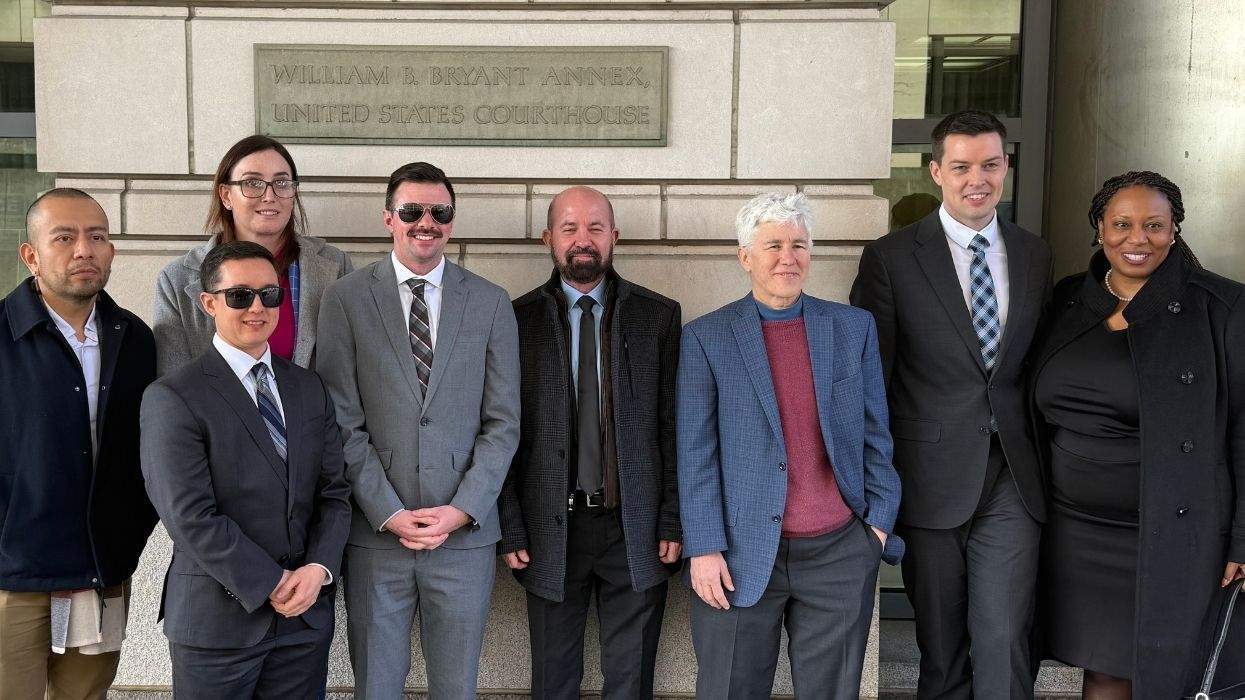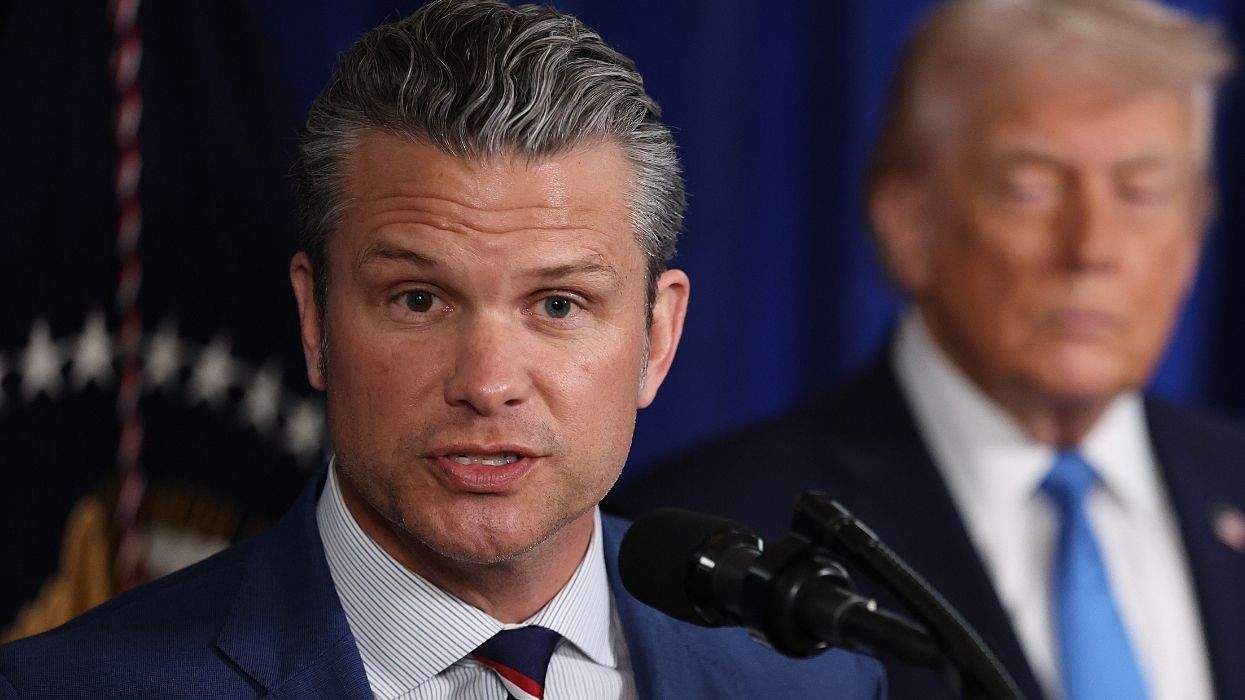In a historic move, the U.S. Air Force announced trans airmen and airwomen will not face "separation" -- release from active duty -- simply for openly identifying as transgender or recieving a diagnosis of gender dysphoria, according to a report by the LGBT military group SPARTA.
In a statement of the military branch's official position, an Air Force spokesperson affirmed on Thursday, "Neither gender dysphoria nor self-identification as transgender is an automatic circumstance that generates involuntary separation. ... Identification as transgender, absent a record of poor duty performance, misconduct, or a medically disqualifying condition, is not a basis for involuntary separation."
Additionally, the Air Force elevated discharge decisions from an airman's chain of command to the Director of the Air Force Review Boards Agency, in a move similar to one the Army made earlier this year.
The USAF's reference to "medically disqualifying condition" can still apply to "gender dysphoria," a form of mental and emotional distress over a mismatch in body and gender identity experienced by many trans people -- but such a diagnosis alone does not require separation, under the Air Force's new guidelines.
What's most sgnificant, as Army helicopter crew chief Sgt. Shane Ortega revealed to The Advocate last month, military doctors may not consider every trans person as automatically suffering from gender dysphoria -- a commonly-held position outside of the military. This creates room for some trans Air Force members to remain in active duty.
"Though the Air Force policy regarding involuntary separation of gender dysphoric Airmen has not changed," explained top Air Force personnel official Daniel Sitterly, "the elevation of the decision authority to the Director, Air Force Review Boards Agency, ensures the ability to consistently apply to existing policy."
However, it's still possible the Air Force may review its stance on gender dysphoria at a later date. "From my point of view, anyone who is capable of accomplishing this job should be able to serve," Air Force secretary Deborah James told USA Today. "And so I wouldn't be surprised if this doesn't come under review."
The Air Force's Thursday decision is still a cause for relief and celebration for the likely thousands of trans servicemembers who had kept their identities hidden out of fear of losing their Air Force jobs, although many others may choose to remain silent if they experience gender dysphoric symptoms.
Meanwhile, trans military advocates urge continued pressure on the Pentagon to lift the transgender military ban that remains intact in all other branches of the U.S. military.
"This is a significant step forward for a portion of roughly 15,000 current transgender service members across all branches," said SPARTA director of policy and transgender Army veteran Allyson Robison in a statement. "However, we need a consistent solution across all the services." She added that the current "patchwork of solutions out there [find] local commanders struggling to reconcile unclear guidance with their responsibility to retain good people."
This reality has resulted in only a handful of transgender servicemembers serving openly over the past several years after their commanders decided not to follow the non-binding Department of Defense Instruction 6130.03. That rule dictates that any type of gender-confirming clinical, medical, or surgical treatment is evidence of "disqualifying physical and mental conditions."
Last month, The Advocate explored the intricacies of this situation with Sgt. Shane Ortega, who gained national recognition after filing a complaint with the American Civil Liberties Union and going public with his story.
Secretary of Defense Ashton Carter, who took office in February, has said he is "open-minded" about reviewing the policy, which has not been updated since it was written in the 1970s. But despite pressure from activists within the ranks and in Washington, the Pentagon has confirmed that no specific review of the transgender-specific ban is currently under way.
"However, the Department of Defense began a routine, periodic review of the Department's medical accession policy, DoDI 6130.03 in February 2015," a Pentagon spokesman, Cmdr. Nate Christiansen, tells The Advocate via email. "The review will cover 26 systems of the human body (e.g., neurologic, vision, learning, psychological and behavioral). We routinely review our policies to make sure they are accurate, up-to-date and reflect any necessary changes since the Department's last policy review... The current periodic review is expected to take between 12-18 months; it is not a specific review of the Department's transgender policy."
Thursday, the creator of the TransMilitary documentary on the U.S. transgender military ban, Fiona Dawson, debuted a short documentary in The New York Times that shows how these policies affect individual trans air force members.
The film, "Transgender, at War and in Love," features fiancees Logan Ireland, a trans Senior Airman serving openly, and Laila Villanueva, a trans Corporal whose identity is not supported by her command.















Charlie Kirk DID say stoning gay people was the 'perfect law' — and these other heinous quotes
These are some of his worst comments about LGBTQ+ people made by Charlie Kirk.